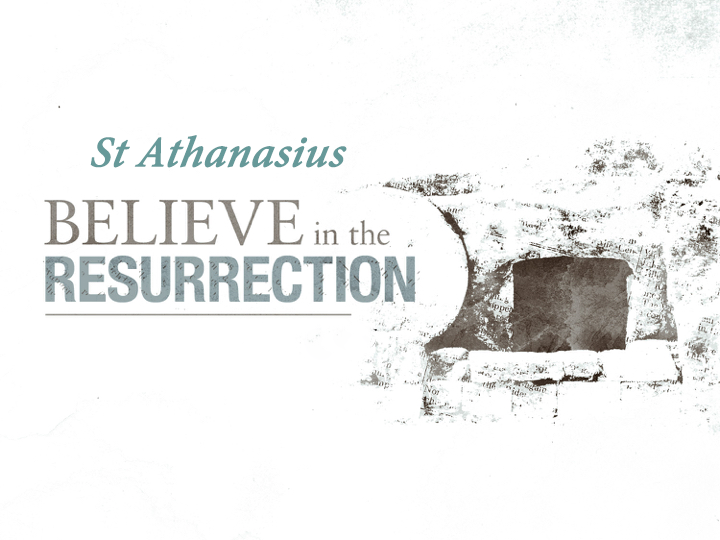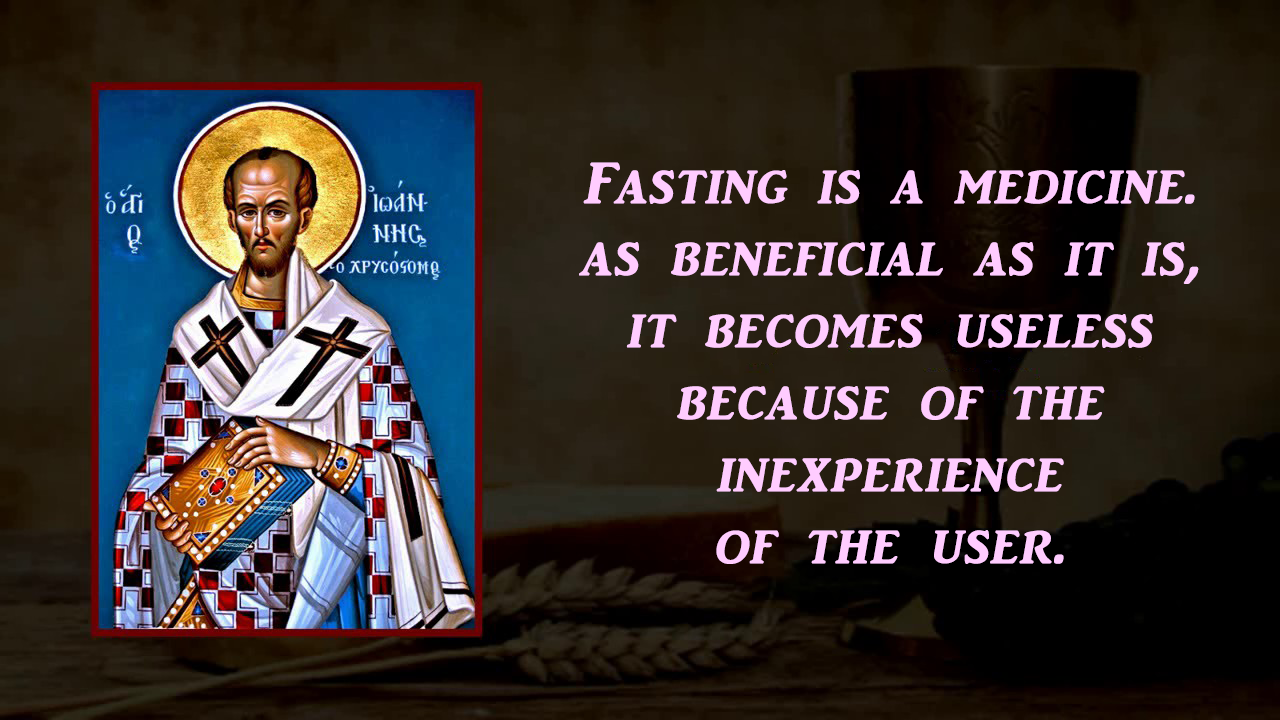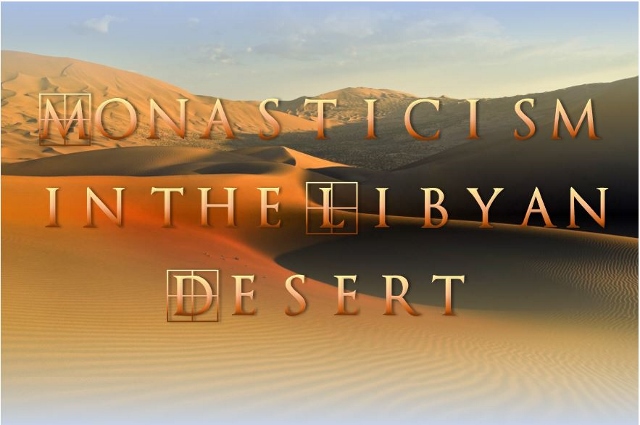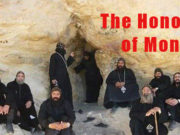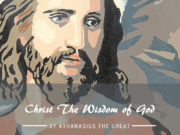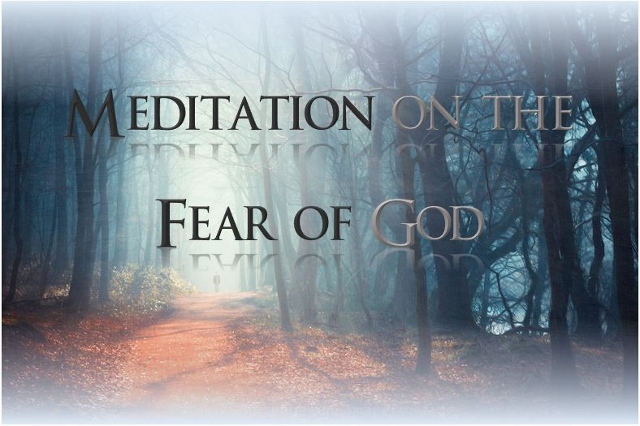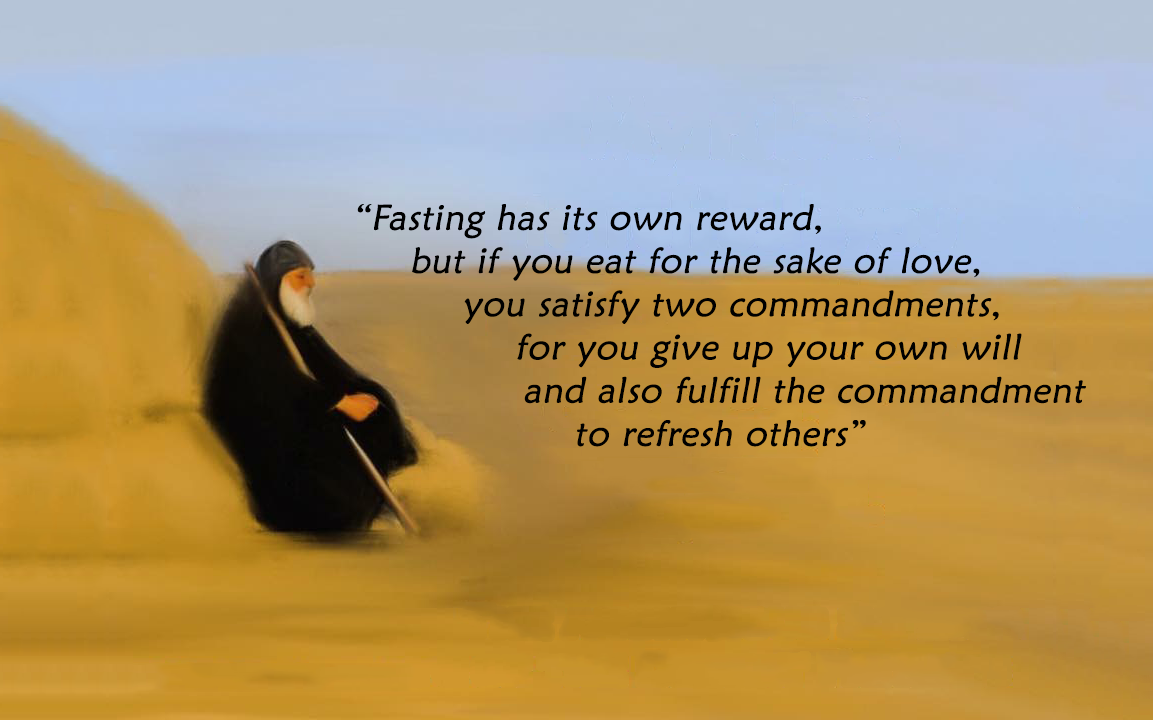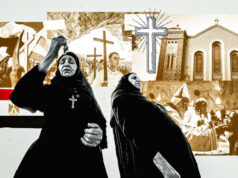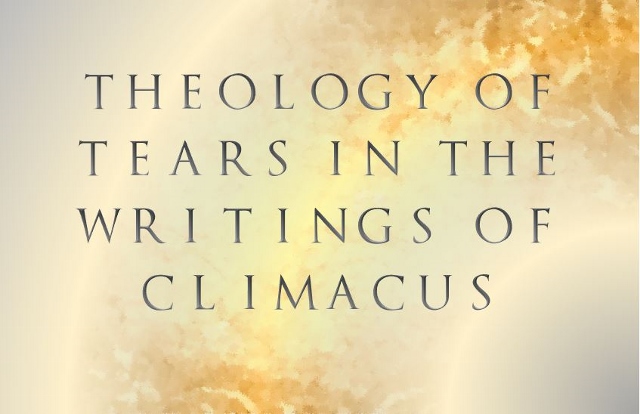
The gift of tears is something ‘native’ to historical Christianity which distinguishes it from the ascetic or mystical traditions of other religions. There is a whole tradition in the Christian East concerning tears which can be traced back to the New Testament, then through the desert Fathers to Climacus himself, who added new dimensions to it, and then through into the later centuries, with Symeon the New Theologian, who had certainly read the Ladder, standing out as one of the greatest witnesses. By the fourth century, tears already played a great role: the Apophthegmata – abba Arsenius being the most obvious instance – and the Cappadocians are among the first to emphasis their importance. Other landmarks are Evagrius of Pontus, Isaiah of Scetis (who devotes a whole discourse, his twenty-ninth, to the gift of tears), Diadochus of Photice, the Macarian Homilies, Isaac of Nineveh, who was Climacus’ contemporary, and, in the West, John Cassian. Cassian, however, was unmistakably influenced by the East, having spent over ten years in the Egyptian desert and having been an immediate disciple of Evagrius, whose doctrine on tears is explicit. The East was not so much the ‘cradle’ of the practice of tears as the caretaker of a treasure given to Christianity by our Lord himself: ‘Blessed are they that mourn, for they shall be comforted’ (Mt. 5:4). Climacus does not essentially add to the traditional doctrine of tears – even in his emphasis on ‘joyful sorrow’ – but merely uncovers some of its hidden secrets.
Tears as charisma: The way of tears is not something pursued by our own effort: it comes about spontaneously and without our straining. Spiritual tears flow with no contraction of facial muscles; they are a gift of God, not a fruit of human effort. Climacus differs in this respect from Evagrius, who says that tears are to be forcibly induced; but even John Cassian, a disciple of Evagrius, believes that tears should not be brought on, although he also states that forced tears are not entirely fruitless. The apparent contradiction between Climacus and Evagrius may be due to the fact that they are speaking of different kinds of tears.
As a gift, tears testify to a visitation from the Holy Spirit. But this is preceded by an earlier visit from the ‘Uninvited Guest’ who arrives first, but later leaves us to mourn his absence. He leaves in order to send us the Spirit which he alone can send (1 John 3.24; Rom. 8.26-7). In this respect, the gift of tears could be seen as another side of the same visitation as is received in compunction.
Even though the ‘gift of God’ does not depend on good works, virtues or ascesis, nevertheless these are not unimportant in the sight of God. Elsewhere Climacus says that ‘such compunction is predominantly a gift of the Lord’: it is primarily ‘up to God’ and only derivatively up to us. Tears are a gift from God to us, yet they are also our offering to God. They become ‘the mystical offering which pleases God and which he receives on his supra-celestial altar, and in exchange for which he confers on us the gift of the Holy Spirit’, as one leading Roman Catholic scholar has said. Such is the ‘charismatic’ meaning of tears.
Since tears are a charisma or a gift, we must guard this gift very closely: ‘If you possess the gift of mourning, hold on to it with all your might. If not guarded as the pupil of the eye, it may be easily lost to the demons. We must not cease to pray lest the tears, granted to us through God’s providence, also cease to flow. We do not know when we shall again receive this grace of water and fire a reference to the baptismal character of tears. Neither should tears be sought before their time – as a gift from above they have their own season: ‘To everything there is a season, and a time to every purpose under the heaven’ (Eccles. 3.1). There is a Season for each divine gift and the season is the point at which God acts, whilst we resist any action but his. Waiting for God to act is the surest way of attaining his gifts: “There is a time for tears, and a time for hardness of heart; …a time for heartfelt sorrow, and a time for spiritual joy.” (Ladder 26, 59) To wait for the season requires patience since the onset of tears is gradual: drop by drop.
The gift of tears is one bestowed on a small number who have renounced the world completely, as is stated in one of the oldest references to tears in Christian ascetic literature. It is a gift belonging to the spiritually mature and the dispassionate, according to Isaac the Syrian. At any rate, Climacus insists, it is conferred by God on those whom he chooses. As it happens, some may not receive it but rather be the recipients of certain other gifts which act as form of ‘inner’ weeping. Still others, in their desolation at the absence of tears, find themselves endowed with them, or with a grace equal to them. In the absence of tears one may at least cast one’s mind upon the distance that separates one from God and then, according to Evagrius, one will weep fervently. But the loss of the gift of tears may also be of our own making. It may be a consequence of the passion of pride:
“Tears often lead frivolous people to pride, and that is why they are not given to some. Arid such people, seeking tears in vain, consider themselves unfortunate, and condemn themselves to sighing, lamentation, sorrow of soul, deep grief and utter dismay. All of which, though profitably regarded by them as nothing, can safely take the place of tears.” (Ladder 7, 48)
Though a precious gift, tears, according to Climacus, are not to be considered an end in themselves or as sufficient to themselves: they are a ‘way’, perhaps not even the only or absolutely necessary one. Tears are not listed in the second alphabet which pertains to the perfect. God does not need our tears: it is we who need them as a help, as a source of purification or delight or joy or illumination. The ultimate goal is the transcendent joy and light which Adam experienced in paradise before the Fall. In any case, the emphasis in Climacus is not on the tears themselves, but on the disposition that makes us able to receive them, on humility, repentance and sorrow at our real state.









